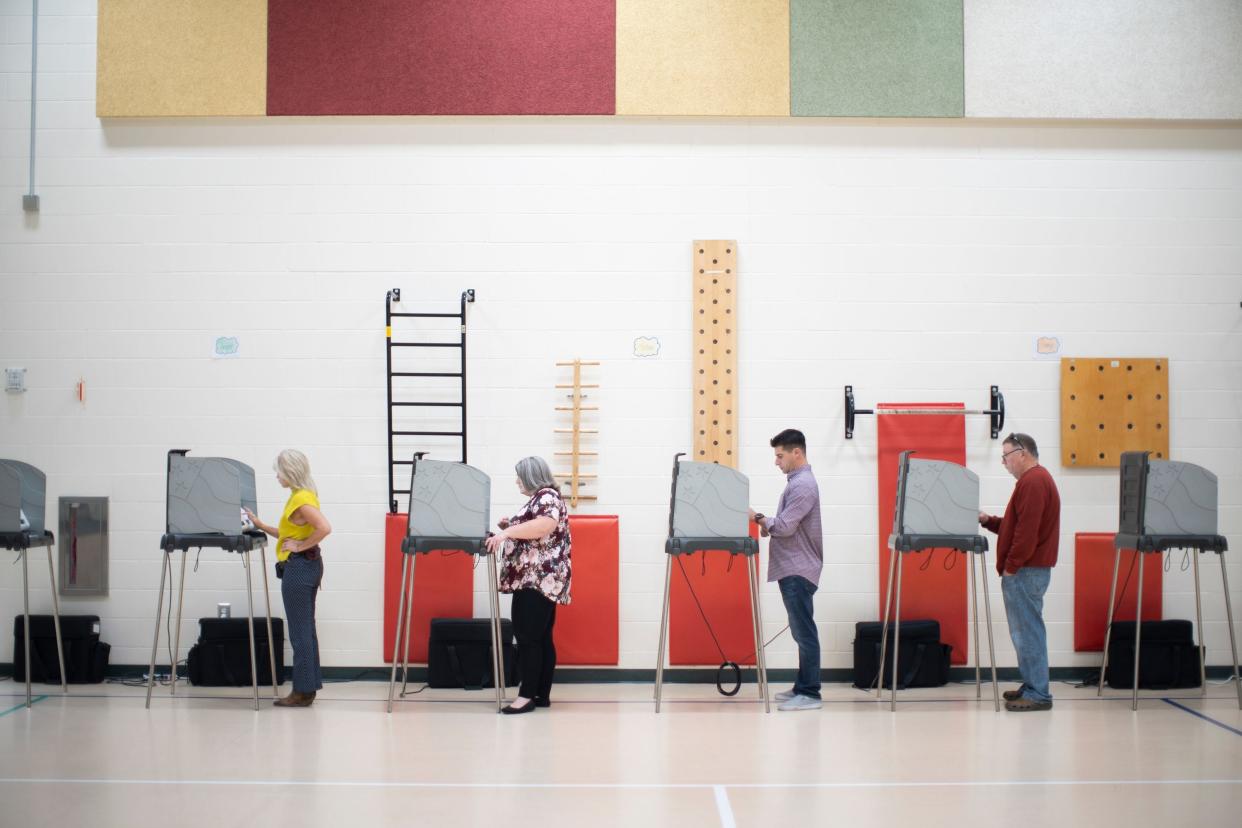Advocates sue Ohio Attorney General Dave Yost after he rejected voting rights proposal

- Oops!Something went wrong.Please try again later.
Advocates want Ohioans to decide this year whether the state should change its election laws − but they say Attorney General Dave Yost is holding up the process.
The group sued Yost on Thursday after he rejected a petition for a proposed constitutional amendment to reform Ohio's voting rules. The ballot measure, dubbed the Ohio Voters Bill of Rights, would throw out new photo ID rules, expand the number of ballot drop boxes and allow automatic voter registration.
The proposal comes one year after Ohio enacted a new voting law to require photo ID at the polls and tighten the timeline for absentee voting. Its backers include the progressive Ohio Organizing Collaborative and the Ohio chapter of the NAACP.
"We think that it’s important to enshrine these things in the constitution," said Deidra Reese, voter engagement director for the Ohio Organizing Collaborative. "We've had legislators who really want to turn the clock backwards in terms of voting rights."
The coalition submitted a revised petition last month after Yost sent them back to the drawing board in late December. The lawsuit centers around the attorney general's second rejection, in which he said the summary's title alone was problematic.
Stay informed: Newsletter, podcast focus on 2024 election news
"It has become commonplace to use the language of advocacy and advertising in initiated statutes and constitutional amendments," Yost wrote in a letter to the group's attorney on Jan. 25. "Such language will be employed, no doubt, in the campaign around such matters. At least on the formal ballot, the language should be as neutral as possible."
The suit, filed by well-known Democratic attorneys, contends Yost overstepped his authority by fixating on the title. Under state law, the attorney general must decide whether the summary fairly and accurately reflects the proposed amendment. Once a measure clears that hurdle, it goes to the Ohio Ballot Board for a review of the ballot language and title.
Proponents of the amendment have asked the Ohio Supreme Court to weigh in. The clock is ticking: Organizers have until July to finalize their ballot language and collect over 400,000 voter signatures to appear on the November ballot.
"We've been sued over this decision. Good," Yost posted on X, formerly known as Twitter. "The misleading title is the only matter of contention, so we will likely get a clean opinion, up or down. The voters deserve a no-spin zone when asked to sign a petition, and I aim to give it to them."
What would the election amendment do?
The measure, if approved by voters, would:
Let Ohioans automatically register to vote when they apply for or renew their Ohio driver's license or state ID.
Allow people to register or update their registration the same day they vote, either on Election Day or during the early voting period.
Require voters to present either a photo ID or a signed declaration attesting to their identity.
Permit boards of elections to install more than one ballot drop box per county.
Reinstate early voting the Monday before Election Day until noon. The state's new election law eliminated early voting hours on that Monday.
In a December statement, Secretary of State Frank LaRose blasted the proposal, calling it a "political Trojan horse" that will make elections less secure.
"I predicted months ago that radical interests are preparing to jam their extreme agendas into our state constitution because they can’t get them passed by the people's representatives in the Statehouse," he said. "That effort is well underway."
The amendment is one of several that could appear on the November ballot. Groups are collecting signatures for proposals to create an independent redistricting commission and increase the minimum wage.
Reese believes the coalition can collect signatures quickly if needed but said state officials shouldn't be "playing games" with the process.
"Voters, when they have an interest in something, they will sign petitions and they will get out and vote," Reese said.
Haley BeMiller is a reporter for the USA TODAY Network Ohio Bureau, which serves the Columbus Dispatch, Cincinnati Enquirer, Akron Beacon Journal and 18 other affiliated news organizations across Ohio.
This article originally appeared on The Columbus Dispatch: Ohio group sues Dave Yost amid push for voting rights amendment

